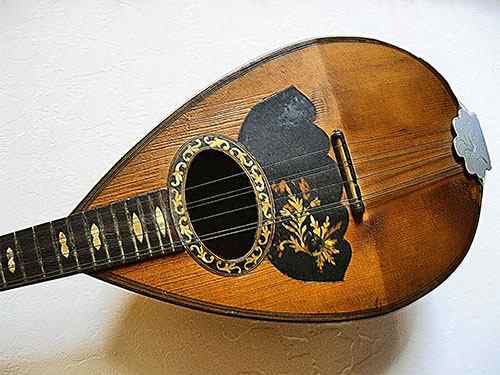Go: [ Home | Previous | Archive | Gods & Myths | Cafes | Coffee | People | Arts ]
 The Other Giotto
The Other Giotto
1:40 PM Friday, June 17, 2005
[Since when is "Schmaltz" Italian?]

Sunday afternoon, around five PM, when Midsummer is a week away and the sun is golden as it gets in the Golden State, is a strange time of transition. The weekend is not quite over, some stores are still open, there's time for a movie or a dinner out, but let's face it, it's not Saturday any more. Looming over the horizon is the day of dread, Blue Monday, when the fun will be over and the next weekend will be five long days in the future.
Returning from a Wine Country picnic, on the way home, I wanted to stop for an espresso, but this time something special. I remembered my impromptu visit to Caffe Trieste in Berkeley, where I had my first affogato, and took a detour to the same destination. When I walked in the place was buzzing because Giovanni Giotto, aka "Pappa Gianni," who founded the San Francisco cafe in 1956, was giving one of his famous music recitals for caffe patrons: a mixture of opera, American art songs, Italian-American classics, and what I call Neapolitan Schmaltz.
The word schmaltz, meaning "grease" or "fat" both in German and Yiddish, was a part of my boyhood, a reference to a certain way of playing music. Gypsies played schmaltz, or employed it in their musical art. Jewish wedding music (we called it "frailach" then; now the term "klezmer" is preferred) was schmaltzy. Romantic Russian waltzes and pop hits like "Autumn Leaves" were schmaltz to my adolescent musical ears. I loved it then, and I still do.
Rock and Roll, at least in its pure form, is totally incompatible with schmaltz. Hip hop? No way. Baroque music? No, although Vivaldi comes close. John Cage? Fageddaboutit.
So how could I apply the term schmaltz to the culture of southern Italy, where olive oil, not saturated fat, is the lipid of choice?
"O Sole Mio." "Funiculi, Funicula." "Torna a Sorrento." Listen. Learn. Schmaltz.
My grandfather Max A Leavitt, born in Russian Poland and Jewish to the core, played the mandolin, and passed on a crumbling "Neapolitan Songbook" when he died in 1951. My best guess is that these songs, claimed to have originated in Campania, around Naples. were part of the universal American immigrant experience about one hundred years ago. I have no idea if these songs are known or played in Campania today. Judging, however, by the enthusiasm of Papa Gianni's audience this fine Sunday afternoon, they have become as American as lasagne and bread dipped in olive oil.
The Caffe Trieste affogato, by the way, was even better than the last one. This time I asked for spumoni and vanilla gelato. Try it.
Update: judging by this website, the Canzone Napoletana is alive and well on the Italian internet.—JDL
|
Technorati tags:
Schmaltz
Napoli
Affogato
Italia
Mandolin
Sorrento
Music
Go: [ Home | Previous | Archive | Gods & Myths | Cafes | Coffee | People | Arts ]
Copyright ©2004-2005 Jonathan David Leavitt


 The Other Giotto
The Other Giotto